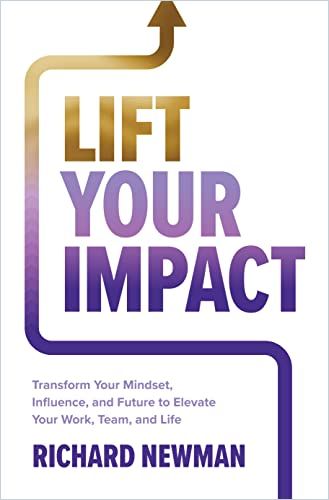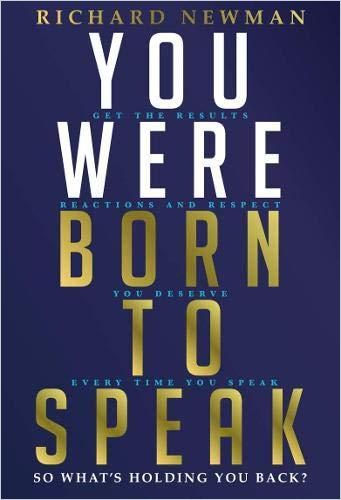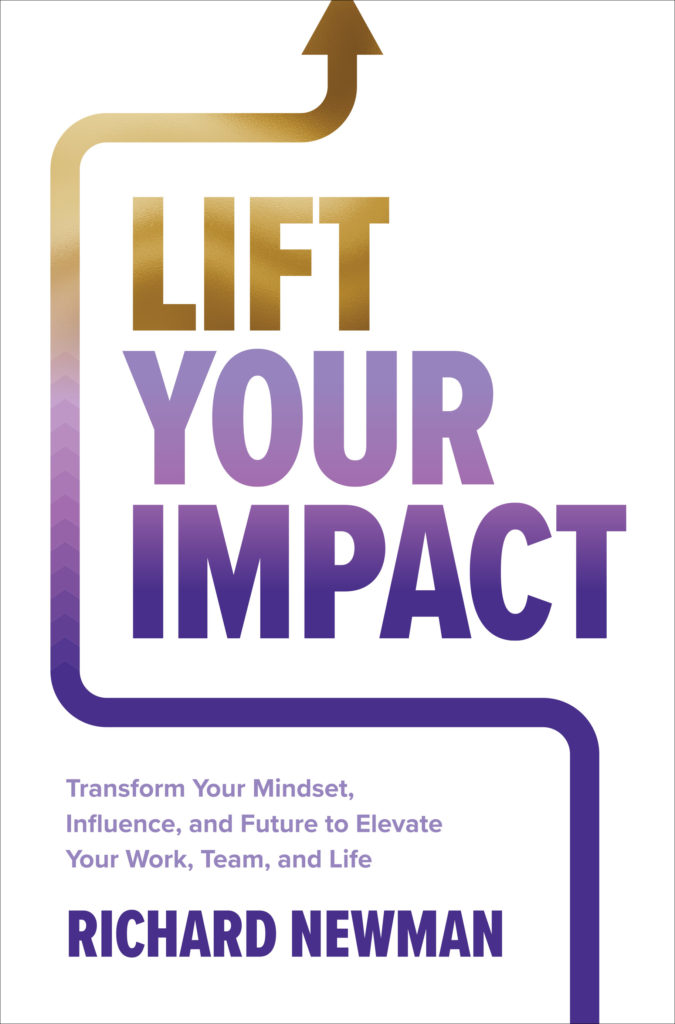Lift Your Values

Your values are the inner guiding compass that shows you the way to your true north. If you ignore them, you could end up working for years towards goals that feel meaningless on completion, wondering what became of your life and the person you used to be. If you discover and follow your values, you will enjoy a lifted mindset and sense of meaning in every step of your journey.
Following your values will also ensure you can bring the greatest version of yourself to your interactions with others. You cannot lift someone else if you are running on empty. This applies to marriage, friendship, work, public speaking, leadership and much more.

Here, I’ll share with you how to prime your mind each day with positivity, pride, and purpose, enabling you to be a force for good in your life, work, and community. Let’s explore how you can do this with strategies you can use daily to lift your mindset through the power of internal validation. This will set you up to lift your impact.
Find Your Internal Validation
In my early twenties, when I worked as an actor, I would spend weeks waiting for an audition to come my way, feeling more desperate with each passing day. When my agent called, I would feel elated, knowing that I had finally been deemed worthy of an opportunity. Then the anxiety would kick in as I approached the event, hoping the casting director would approve of me. On occasion, I would sit in a waiting room with people who looked very much like me, wearing similar outfits, as we awaited our fate. Many auditions would last less than ten minutes. If the person seemed to like me, I would leave feeling good about myself. If they seemed cold, I would leave in a state of rejection. As you can imagine, this was a rollercoaster of emotion that seemed beyond my control.
This is not unique to the acting world. When you are seeking external approval from others about your work, your appearance, your social posts, or anything else, you may experience the same stress.
Seeking external validation can feel like trying to control the wind—a relentless and exhausting task that will pull you in every direction in a fruitless pursuit.
This can also lead you to an increase in two hormones that can cause you to lose your cool – adrenaline and cortisol. Cortisol is the main stress hormone in the body. It can help you feel awake and alert, but when it spikes, it can make you feel stressed. Adrenaline can create a state of readiness, but if you have too much, it can cause you to shake with nerves. In important moments, you need a method to restore calm and confidence before these hormones derail you.
Psychologists David Cresswell and David Sherman ran a series of experiments to see if they could help people better control both of these hormones. In one study, known as the Trier Social Stress Test (TSST), Cresswell and Sherman asked two groups of people to give a speech in front of a panel of judges, who had been instructed to give no positive reactions. Before starting, the first group was told to write a full page about a deeply personal value, such as integrity or honesty—any value that meant something important to them. The other group was told to write about something they didn’t care about. Both groups were then asked to give a speech followed by a tough math challenge, all while the panel gave no encouragement and continually told them to “go faster.”
The group who had written about something that meant nothing to them went into the interview looking for external validation from the panel, hoping for praise, approval, or acceptance, and the lack of validation caused a state of stress. However, the group who wrote about their personal values remained calm.
They already had internal validation by focusing on their values. This allowed them to feel serene under pressure, without the concern of external approval or impressing others. Their cortisol levels were the same before and after the event. This proves that by focusing on your core values, you can stay in a peak state when you need to, centered in the best version of yourself.
Let’s reflect on your relationship with external validation for a moment: How much time do you spend each day seeking others’ approval? Do you check social media, hoping for likes, comments, and followers? Do you seek compliments or affirmation about your work from colleagues or your boss? Do you feel upset when your partner fails to compliment your outfit or your child neglects to hug you before leaving the house?
There are many situations each day in which you may be longing for external validation, affection, or appreciation. These are beyond your control and do not reflect your worth. Focusing on them can be draining and demoralizing.
We all have moments when we feel like the things we do each day aren’t big enough or special enough. While people are not cheering you on when you complete a spreadsheet, change a lightbulb, or look after your child, it doesn’t mean that what you do is not important. In these moments, instead of seeking significance and validation from others, you can find it within through internal validation. Many other studies have also shown that internal validation leads to greater success, well-being and even motivation.
Motivation From Within
When you have internal validation, you will gain intrinsic motivation. You will not need to rely on other people or events to get you fired up or feel confident in who you are. You will light your own fire. This was proven in 1973, when Mark Lepper led a study at Stanford University to find out how focus impacts motivation. Researchers selected children who enjoyed drawing and told them that they would gain a set reward for each new drawing they completed. When they stopped rewarding the children, their motivation to draw dropped by around 50%. They no longer saw the intrinsic value in drawing. They had shifted to an expectation of extrinsic rewards. In 1999, Edward Deci reviewed 128 studies in this area which came to the same conclusion, that extrinsic focus has a “substantially negative effect on intrinsic motivation.”
Have you ever tried to motivate yourself or others through extrinsic reward? This path leads to struggle and frustration, as well as poorer work.
In the Lepper study, researchers also found that children who expected a reward created drawings that were less pleasing to look at. They didn’t care as much about the quality of their work as they did the quantity because of the rewards. You may experience the same lack of motivation in your work or daily life when you lose focus on your values.
This doesn’t mean that you should never reward yourself. In fact, Lepper’s study also showed that children who were occasionally given a reward by surprise increased their motivation to draw, even on days when no reward was given to them. They were even more motivated than children who had never been rewarded. You can give yourself a spontaneous celebration when you’ve earned it, just remember that the path to your greatest work and highest motivation comes from within. To achieve this, you must stop waiting for other people to choose you or validate you and pick yourself instead.
The Power of Self-Determination
In 2014, I wrote a speech called ‘Pick Me’ on the theme of internal validation, and it resonated with many audiences. The speech won the Grand Prize Cicero Award, selected by a panel of speech writing experts based in Washington DC. I share a short section of it here, to inspire you to move away from seeking validation from others:
Do you remember the feeling of playing sports at school, standing in line, waiting to be picked? Thinking “pick me, pick me.” Then, finally, you were picked, and after a brief sigh of relief, you realized you had been chosen by a team that you really didn’t want to be on. Once you started playing, the other players didn’t include you. They never gave you the ball, but at least it was better than not being picked.
Reality shows and social media keep pushing the ‘pick me’ culture. Vote for me. Like me. Don’t evict me. Expose everything about me, as long as you pick me.
You might think you can escape it by switching your screens off. But, unfortunately, you can’t, because businesses are built with the same boundaries. Interview me. Hire me. Promote me. Whatever happens, pick me. Then, following the sigh of relief you get from being hired, you realize you didn’t want to be on their team either. According to a study by Deloitte, 80% of people who are employed don’t like their job.
When I finished my education, I was $30,000 in debt. I had no mobile phone or computer (it was the 90s). I was living at home with my parents, feeling lost. For a brief time, I felt suicidal. I thought I would never be picked; by an employer, by a romantic partner, by anyone. I had no idea what to do next, until I woke up one day and took the only choice I had. I chose to validate myself in life, love, and work.
I stopped longing for approval and acceptance from others. I focused on the life I wanted to build, the person I wanted to become and the people I wanted to share my life with. I wrote out a clear vision for my life, guided by my values, that I would work towards daily.

From that place of internal validation, I began the journey to build a multi-million-dollar company, doing work that I am passionate about, starting with no money or prior business experience. I also wrote a list of all the qualities and shared values I wanted in my dream romantic partner, plus what I would bring to our relationship. I read this list every day to focus my mind on my values and vision. A few months later I met her and we have since been together for twenty years. None of this would have happened unless I started with internal validation and living by my core values.
In life we tend to keep looking left and right, waiting for someone else to step into our life and fix things or provide for us.
But, the only way to feel true security, freedom, and joy is to step up as the hero in your own life. The world doesn’t change by you playing small. Don’t wait for governments, corporations, or the school system to change. Be the change. Whatever happens next for you, whatever you choose to do, remember that you don’t need to wait for someone else to pick you to live the life that you want. You can pick yourself. Let’s get started by getting connected with your core values.
Discover Your Values
Values are the principles that are most meaningful to you. They help define who you are and how you make choices each day, whether you are aware of them or not. These core values will guide you when faced with a critical decision when there is no clear path ahead. They subconsciously steer your life. When you become conscious of them, your core values can lift your state and guide you through the most challenging moments.
When you begin to reflect on your core values it’s important not to fall into the trap of confusing them with your desires. Your desires focus your attention on what you want, while your values steer your decisions on how to achieve your goals.
At one of my events, I met a young, aspirational business owner. I was hosting a workshop on mindset and had asked the group to write down the core values that drove their decisions. He was certain that his number one value in life was money. I told him that while he may want money, it likely wasn’t the core value at stake in his decisions. I asked why he wanted money, and he said, “Money has always been tight for my family. I grew up poor. When I came home from school each day, I didn’t know where I was going to sleep. The only meal I was guaranteed each day was my lunch at school. Now I have a wife and a child. I do everything I can to make sure I can pay our bills and put food on the table so that I can look after them.” It became clear after sharing that information that his core value wasn’t money. His goal in life was to look after his family and avoid the insecurity of the past; that’s what he wanted the money for. After discussing this, he came to realize that his main value was, in fact, security.
Another delegate at the same event spoke up at this moment. She also thought that money was one of her core values, yet her story about money was very different. She wanted money so that she could order whatever she wanted in a restaurant without ever looking at the price. She kept her passport in her handbag all the time, so that if she felt the urge she could go directly to the airport and travel wherever she wanted, to do whatever she fancied with whomever she felt like being with. What do you think her core value was? What was money providing for her? We discussed this, and resolved that her core value was freedom.
Security and freedom are very different. You could argue they are opposites. Yet, both of the above people thought they had the same value: money.
As you consider your values, remember to work back from what you want until you discover why you really want it. What value is driving you? Why does it matter so much? You may find that just a handful of values are guiding most of your actions daily.
Try this now – think of something that you want in your life. You might desire a relationship, a job, or a material object. Next, consider why you want this. What will you gain from having this? How will this impact the people around you? Lastly, consider, do you want it at any cost? Or are there certain principles you will not break in order to get it? Your answers to these questions will start to reveal your values. For example, you may want a new car, but you won’t be willing to get that car by stealing it if one of your values is honesty. You might crave a new relationship, but not at the cost of being with someone who ignores you if one of your values is connection.
Your Turn
To get things started, grab a pen and take the time to fill out the worksheet below (or use your own notebook) so you can get some real practical value from this article.
- Consider what you deeply desire in life.
- Then consider the values that will shape your decisions around attaining your goals in the future, including the boundaries that you will not cross.
- Write each of your values in the space provided, and then answer the question that follows.
Make sure you write this down. Don’t do it in your head. Writing about your values and how they have shaped your life will help you gain a deeper connection to each of them.
Value 1 (e.g. honesty, compassion, being a good parent): ___________________________________
Why is this value important to you? How has it shaped your life?
_________________________________________________________________________
_________________________________________________________________________
_________________________________________________________________________
_________________________________________________________________________
_________________________________________________________________________
Value 2: ___________________________________
Why is this value important to you? How has it shaped your life?
_________________________________________________________________________
_________________________________________________________________________
_________________________________________________________________________
_________________________________________________________________________
_________________________________________________________________________
Value 3: ___________________________________
Why is this value important to you? How has it shaped your life?
_________________________________________________________________________
_________________________________________________________________________
_________________________________________________________________________
_________________________________________________________________________
_________________________________________________________________________
When you have created your values, you can use them to prime your mind to perform at your best all day. You may like to write the values on a notepad and keep this by your bed so that you see it first thing in the morning. You can also put the values on your phone’s home screen so that you see them throughout the day. Whenever you feel lost or overwhelmed, take a moment to reconnect with your values, feel proud of who you are and use them to guide your actions. That way, you will feel good about yourself and how you responded to life’s challenges at the end of each day. To learn more, you can check out Lift Your Impact.
About this Article
This text is taken from Richard Newman’s new book Lift Your Impact. The author has slightly edited the section for getAbstract. We’d like to thank Richard and his publisher for their kind permission to preprint.








